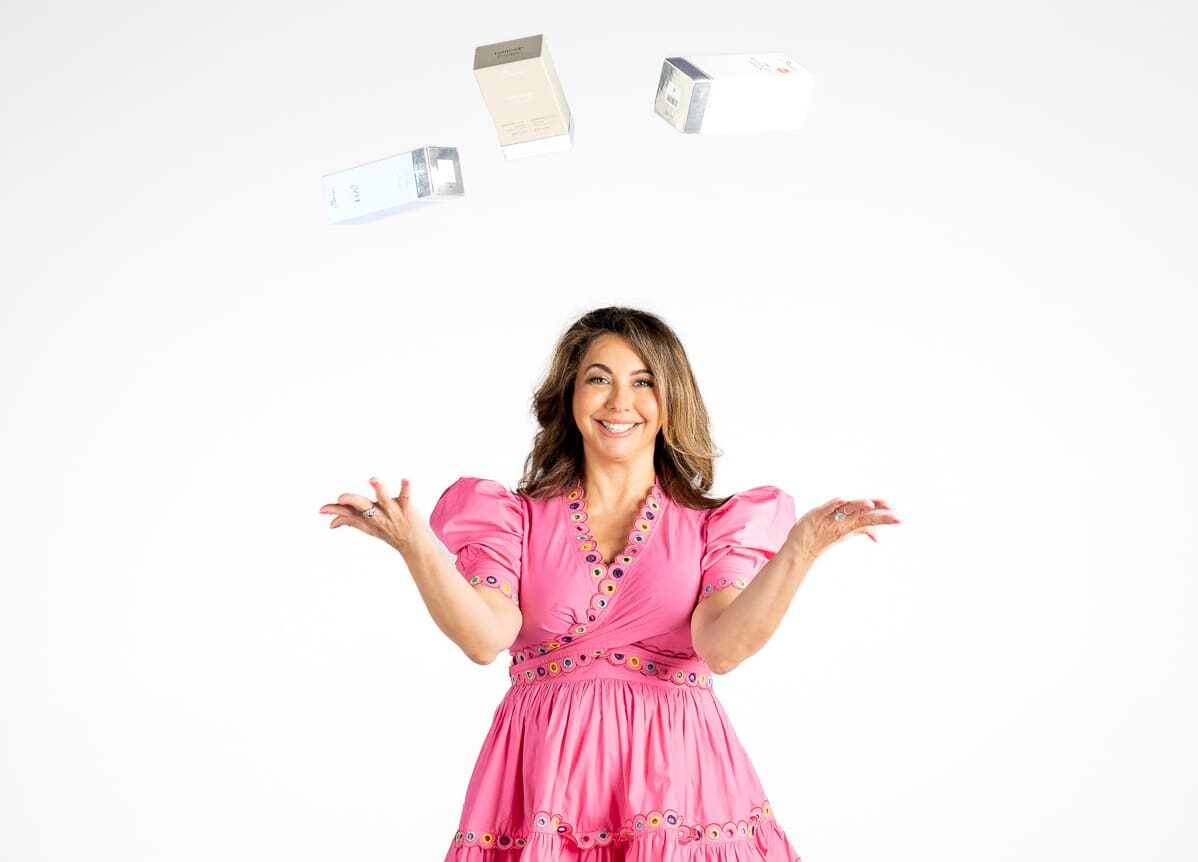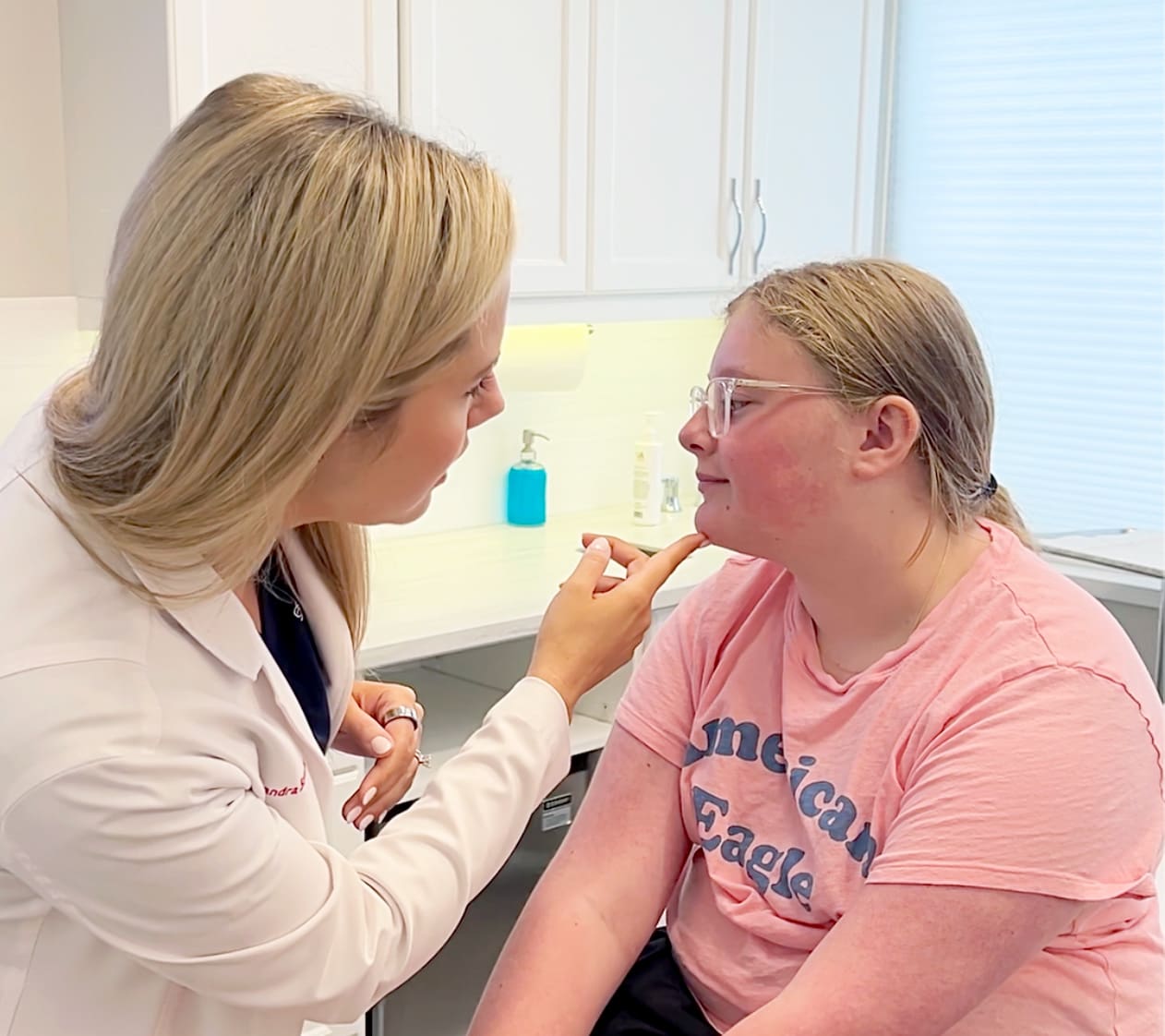Teen Skincare Secrets & Teen Acne Tips
Is your teen skincare obsessed? Local board-certified dermatologist Dr. Mona S. Foad shares her top tips for teens, including what products they should (and shouldn’t) be using, the science behind acne breakouts (including teen acne tips), and when it may be time to seek help from a professional.

Teen Skincare Simplified
Back to Basics
If your teen wants to begin a skincare routine, it’s best to start simple with a cleanser, moisturizer, sunscreen, antioxidant, and potentially a retinol if needed. These products are the foundation for a great skincare routine. Specialty products can be added in, as needed or desired, from there.
Use Caution with Actives
Ingredients like benzoyl peroxide, salicylic acid, glycolic acid, or retinol can be helpful in moderation (especially for acne-prone skin). However, using too many active ingredients in combination can damage the skin barrier and cause dryness and irritation. Keep an eye on the products your teen is buying, and educate them on the importance of using only one or two products with active ingredients at a time. If your teen experiences burns, irritation, rashes, or dryness, consult a professional, such as a dermatologist. It could be that they are having an allergic reaction to the products or they are using too many products that are drying out their skin and disturbing the natural microbiome of a healthy skin barrier.
Limit Variety
While popular skincare products can look cute and be fun to try out, they could also cause more harm than good. When trying out multiple new products at once, it can be hard to pinpoint if one of them is causing breakouts or irritation. It is especially important to use caution if your skin is sensitive or acne-prone. If you enjoy adding variety to your skincare routine, try to stick to switching out products such as gentle cleansers, lightweight moisturizers, or mineral-based sunscreens. While there is always a risk of irritation when introducing a new product, these are generally tolerated by most skin types.

Teen Acne Tips: CAUSES
Hair Follicles
At all ages, acne breakouts begin when small pores in our skin, known as hair follicles, become blocked or inflamed. We also have sebaceous glands attached to these hair follicles, which produce oil.
Clogged Pores
Sweat, makeup, dirt, oil, or dead skin cells can build up and clog the hair follicle over time. At the same time, bacteria can create inflammation in the hair follicles. These factors can contribute to the formation of breakouts.In addition to these typical causes of acne, changes in our hormones and oil glands during puberty can make acne more severe.
Oil Glands
When teens go through puberty, hormones cause existing oil glands within the hair follicles to enlarge. This causes an increase in oil production within the cells of the hair follicle canal. This increase in oil often causes whiteheads or blackheads to form.
Bacteria
During puberty, there is also an increase in the production of acne-causing bacteria. This can cause whiteheads or blackheads to become more inflamed. If this inflamed material cannot be released, it can break down into the skin and cause deeper cystic lesions to form.Your teen’s acne could be rooted in any of these causes (or more likely, a combination of them). For this reason, patients often require a few different treatment strategies used together to achieve the best results.
Teen Acne Tips: Treatments
Treat the Bacteria
Using benzoyl peroxide, topical antibiotics, or oral antibiotics can all help to treat the bacterial component of acne. By reducing the acne-causing bacteria, inflammation within the hair follicle can improve.
Increase Cell Turnover
Consider using a topical over-the-counter retinol or prescription retinoids such as Retin-A, Differin, or Tazorac. These will help increase cellular turnover and normalize the top layer of skin. This helps to prevent blackheads and whiteheads from forming.
Unclog Pores
If you sweat or wear makeup, make sure you are washing your face to prevent buildup from accumulating within the hair follicle. Adding a topical acid, such as salicylic acid or glycolic acid, will help exfoliate your skin further.
Normalize Hormones
Birth control pills or spironolactone (for women) are two ways to help target the hormonal component of acne.
Accutane
Accutane is a vitamin A derivative that can be used if necessary to help shrink the oil gland within the hair follicle. This medication should only be prescribed by a trained professional and requires lab monitoring.
In-Office Treatments
At Mona Dermatology, we have several treatment options that can treat the causes of acne, such as normalizing the skin or killing bacteria. Our favorites include the BBL Hero “Forever Clear” acne treatment, chemical peels, and the Diamond Glow facial.
CONSULT AN EXPERT
Constantly trying out new skincare products or combing the wrong ones can be a recipe for a skin disaster. It’s important to make sure your teen is caring for their skin properly, but it can be challenging to know what they are using.
At Mona Dermatology, we offer teen skincare consultations that are the perfect place to start! Your teen will be treated to a 45-minute visit, including VISIA Skin Imaging, an in-depth education on the basics of a good skincare regimen, and a complimentary skincare travel bag. They will leave with a basic understanding of what products are harmless to experiment with and which they should avoid combining, so they can have fun with skincare safely. Schedule a teen skincare consult by calling 513.984.4800.

